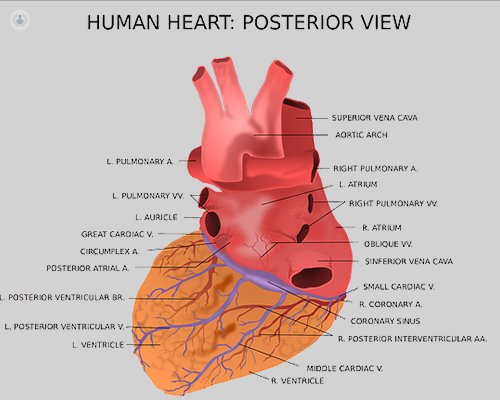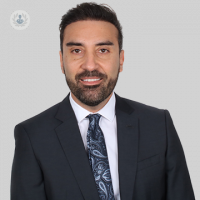Do I need to worry about a stabbing pain in my chest?
Written by:Along with the discomfort brought by sudden, stabbing pains in the chest, they can be alarming for patients to experience. In this expert guide, highly respected consultant cardiologist Dr Pierluigi Costanzo explains the most common causes of pain in the chest and when to see a medical specialist.
Do I need to worry about a stabbing pain in my chest?
Sooner or later in life, we will experience pain or some sort of discomfort in our chest. So how do you know whether you need to be worried about it or not?
Here is the good news – the vast majority of the time, you don’t have to worry about it! Nevertheless, how can you know whether a chest pain is heart-related or not? And if so, whether it would need urgent attention or can wait for a bit longer.
In this article, I am going to try and reassure where I can and I advise when you need to seek medical professional help.
Let’s describe a typical scenario: you are going through the hustle and bustle of daily life. Suddenly, you feel a very localised and stabbing pain on the left side of your chest. It does not stop you from doing what you are doing, but it is there and it is causing you some concern. It might change with sitting down or standing or it might get worse or improve with a different body position. You can localise it with your finger and it might worsen if you touch the area with your finger. However, it does not get worse if you take a brisk walk, climb stairs or lift heavy weights. You have had the pain for two or three hours. Other than that, you have no other symptoms, like feeling short of breath, feeling faint or blacking out. Do you need to worry about it?
The answer is not really. This is what doctors usually refer to as “atypical chest pain”. This is a broad term to describe a symptom that is unlikely to be caused by an obstruction in the flow of the heart arteries.

What can cause atypical chest pain?
One of the most frequent causes is related to the muscles of the chest walls. In actual fact, through our life we often cause subtle trauma to the chest (i.e. lifting a heavy object, straining during exertion). Most of the time, we do not even remember when it happened but this might cause a localised chest muscle sprain, strain or bruise. As a consequence, that part of the chest will hurt. The pain will be as I have described above. These kind of pains tend to self-limit and as I explained, are in the very vast majority of times, not heart related.
What if these pains keep coming back?
There is a small chance that other forms of chest wall issues (lung diseases, rib fractures, rib joint inflammation, pinched nerve, stomach, gullet and gallbladder problems) might present this way. Occasionally, a heart related issue might present in this “atypical” way too.
A heart check-up would be certainly useful if the symptoms are persistent, especially in cases of history of high cholesterol, smoking, high blood pressure or heart diseases in the family.
Dr Costanzo is one of the UK’s leading consultant cardiologists. If you are concerned about your heart health and wish to schedule a consultation, you can do so by visiting his Top Doctors profile.


